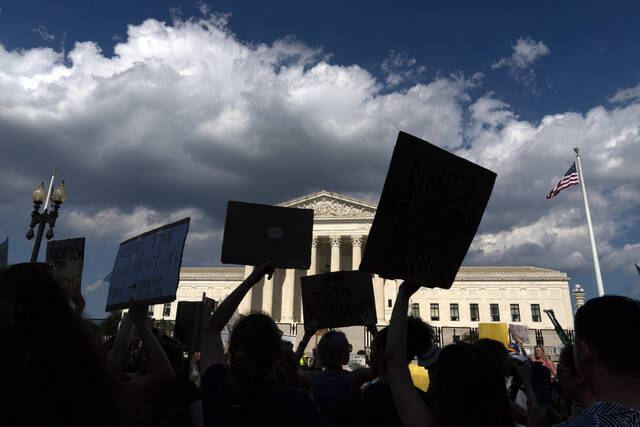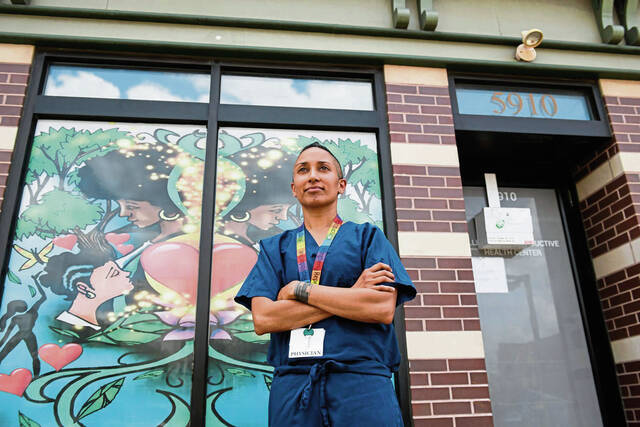I took a glance at the two sides last week, and it didn’t look pretty.
On Wednesday, I attended a township board meeting, where an owner’s right to open a gun shop in our town just west of Philadelphia was challenged. In one corner: an Orthodox Jewish owner, operating a training and gun transfer store, supported by some Orthodox Jews in the neighborhood. These neighbors expressed fear they have become targets of hatred, not yet in our community, but in our state and throughout our country. They described their family histories of having been persecuted, their recollection of murder at the Tree of Life synagogue and their obligation to teach their children self-defense.
In the other corner: secular Jews and non-Jews from the community. Doctors, lawyers, teachers, all gun opponents. They told stories about feelings of unsafety in classrooms where children practice hiding in closets, ravaged gunshot bodies in emergency rooms, depressed patients lost through suicide and disgust about guns multiplying in the town square. One Israeli immigrant’s spouse had watched her neighbor’s head blown off in a South Philly drive-by and had scampered for refuge with her two small children.
Each side’s vantage point was valid. Although the tone was generally respectful, there were flashes of impassioned anger breaching protocol. When civil argument can’t be resolved with words to each side’s satisfaction, one side may try to win through exercise of force — by altering the rules or resorting to violence.
Two nights later, my wife and I went out for dinner in the suburbs with old friends. Because “out” literally means outside because of covid, the smallish restaurant veranda had its tables relatively close together. Our conversation ultimately settled on the Supreme Court, and we lamented — a bit too loudly — that the abortion ruling had been cruelly extreme, that they seem intent on imposing Christianity on all Americans, that rural Republicans understandably resent educated elites, that gun propagation and related killings seem OK with them. Then, the woman at the next table stood up, declared herself Catholic, told us how wrong-headed we are, and said she was so offended that she was leaving without dessert. We were stunned. Maybe in part because we had been caught with private opinions in public, but mostly because this wasn’t a place for open conversation. All I could muster was, “You know, we all have the right to our point of view.”
If we had met for coffee, what I would say to this woman is that I don’t know anyone — whether on the right or left — who wants to criminalize the procedure in all circumstances. That the majority of the court seems to be deciding issues stemming from Catholic bias and not case law. That there is a short distance from domination by religion to autocracy. That deciding matters by intimidating or steamrolling your opponents will eventually hurt you too.
I listened to Sam Harris’ podcast last week, and his guest was David French, a long-standing Republican. He served in the Army in Iraq and described the impasse between Sunnis and Shiites: personal grievances that were so immediately and overwhelmingly evoked that the two sides couldn’t reflect on shared problems. And that’s how it felt at the township meeting and in the restaurant.
Daniel Ziblatt and Steven Levitsky’s book “How Democracies Die” describes the ground rules for democracy: mutual tolerance and forbearance. They explain that our system has historically relied on consensual criteria for reality, respect for specified institutional traditions — including not trying to win at all costs — and acceptance of non-violent actions to resolve conflict.
There have been breakdowns in these norms since Reconstruction, and we’ve been mired there since the 1990s. The events of Jan. 6, 2021 violated these elements: violent acts — motivated by a false belief that Trump had won the election — intended to upend our accepted procedures, followed by an ongoing attempt to undermine voting clout for minorities.
The broken norms remain. The two sides don’t agree on the facts. The Republican Party won’t address the burning earth as a primary problem. Many Republican leaders are willing to lie to acquire power. The court majority seems ready to encroach on established freedoms, and they consider a football coach’s prayer at the 50-yard line private. White Christian rhetoric has become hostile while hate crimes continue to rise. I understand my Orthodox Jewish neighbors’ fears, although I haven’t bought a gun at their store.
My essential questions to my Christian neighbor: What are your main grievances? Has the texture of the country changed too much by opening it to other religions, ethnicities and customs? Do you object to settling disagreements with words and ideas, and if so, why?
Andrew Smolar, M.D., is a psychiatrist, psychoanalyst and clinical associate professor of psychiatry at the Temple University School of Medicine.








